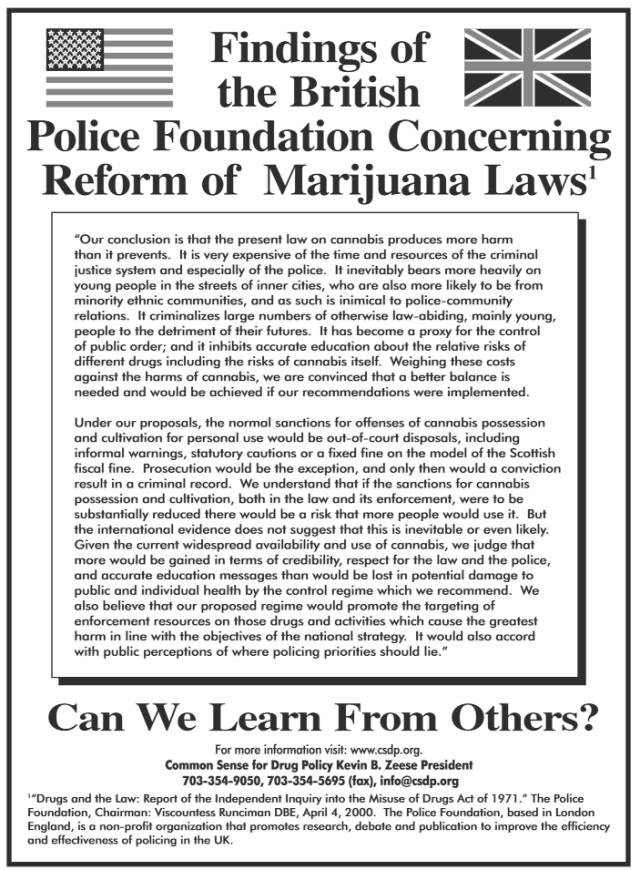025
"Findings of the British Police Foundation" A two-year study recently concluded that Britain should move away from the American model of tougher enforcement and longer prison sentences and move instead in the direction of other democracies in Western Europe, where possession of many drugs and hallucinogens has been decriminalized.
This advertisement appeared in the National Review,the The New Republic,the Weekly Standard,The Nation,Reason Magazine and The Progressive.
Available in Portable Document Format (PDF).
This advertisement appeared in the National Review,the The New Republic,the Weekly Standard,The Nation,Reason Magazine and The Progressive.
Available in Portable Document Format (PDF).
Download PDF

